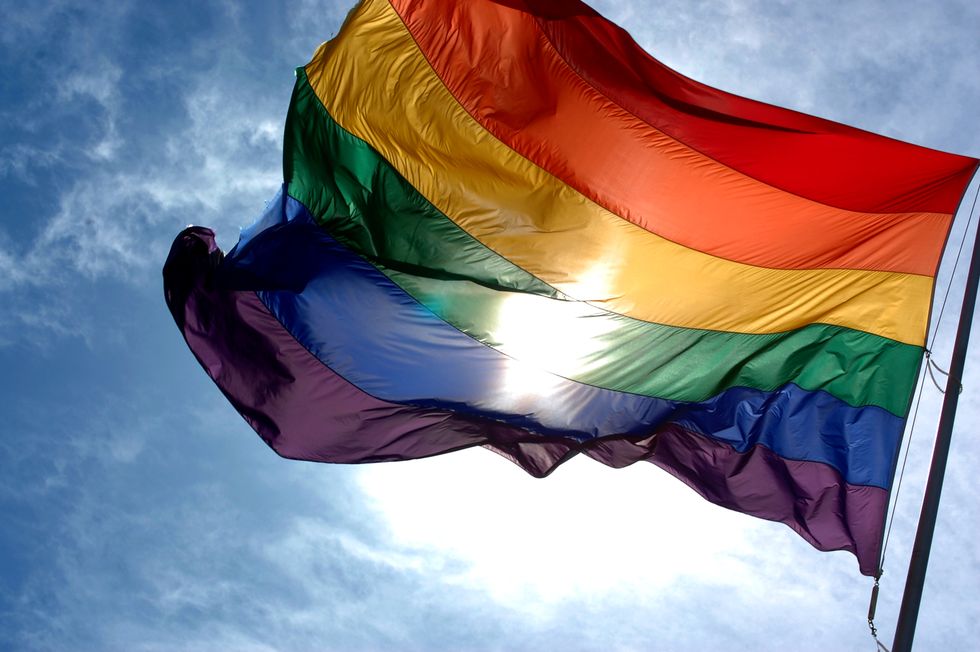On Christmas Day in 2014, I decided to give my friends an unexpected gift: a text message telling them that I was gay.
The announcement came months after deliberation in my head, alone, about how exactly I should come out. Upon reflection, Christmas day was not the appropriate time to come out to my close friends. It distracted them from their families, gift openings, breakfasts. But, it makes for a memorable (and quite funny) story.
The reason I ultimately decided that Christmas was the day to come out was not that I was ready, comfortable or even fully sure of my sexuality, it was because I felt this expectation to come out to my friends. That me not being honest about my sexuality with them was a form of dishonesty. This pressure was so mentally exhausting that I ended up impulsively coming out to them, but it worked.
Shortly after "coming out", I realized that something didn't sit right with me. I pondered if it was the timing, date, myself, their reactions, etc. However, I soon realized that it was none of those things. It was the simple fact people are pressured to come out. If I were to be heterosexual, I wouldn't have to text them and say "I'm straight. LOL," It would be expected.
Coming out can be dangerous for many LGBTQIA+ individuals. It can cause them to become homeless, abused, disowned or even killed. The pressure to come out lies largely in our culture, but within the LGBTQIA+ community too. As I read more into the experiences of coming out, I began to realize one thing:
No one owes you a coming out statement.
Coming out is a deeply personal experience. It's an emotional rollercoaster to just accept yourself. To add the expectations of others to accept you for who you are? It can make it quite traumatizing to process and ultimately come at peace with. With messages of eternal damnation, officials in the presidential cabinet being notoriously homophobic and the plethora of hate-groups that protest funerals, campuses, and other functions, hope can sometimes be bleak for members of the LGBTQIA+ community.
I realized I didn't want to experience that anxiety, fear and crippling thoughts I dealt with for months (and even years) leading me to my coming out on Christmas Day. I shouldn't deal with a personal hell of crafting a message, status or memo for each individual person I talked to. I hated doing it the first time, so why stick with it for the rest of my life?
I decided to take an easier route, to come out if it arose in conversation. It removes the guilt of lying but removes the pressure of me putting myself in intensely emotional situations if it's not pertinent. Throughout the remainder of high school, and most of my first semester of college, most people found out through conversations that it arose. If we were discussing boys or our sexualities, for example. It became conversational, and not something I felt obliged to tell people. (The only other person I came out to formally was my then-to-be roommate, out of respect for him knowing everything about the person he would live with.)
It took about another eleven months since until I formally told my parents. They had suspicions though. I stopped talking about girls, used gender-neutral pronouns when discussing relationships (or lack thereof). I came home for Thanksgiving break when they asked me if I was gay. It was a gut-wrenching emotion for a second, but I simply replied with a "Yes."
My parents tried to question me that evening, and then a few days later. I told them what I was willing to. They didn't need to know how long I knew if I had any previous gay experiences or anything besides my sexuality. Again, they wouldn't ask those questions if I announced I was attracted to women.
As more and more people began to find out, I noticed one consistent thread. From my closest family members and friends, they all said. I wish I would've been told sooner, in a one to one conversation, or not when social media did.
It doesn't diminish my love and respect for them, and I understand their angle of frustration, but again this is my sexuality. My story to tell. My sexuality doesn't make my unique or any different than who I was when I was presumed to be heterosexual, so why treat it that way? I don't need to put myself on some podium and bare all my emotions, which ultimately gives me attention, for something that shouldn't warrant attention. My sexuality is who I am, was and will always be.
In a lot of ways, this is a coming out post and contradicts what I said above. People who are reading this may be learning about my sexuality for the first time, and that's okay with me. Again, this is my sexuality and story to ultimately tell. I believe that this article is important so people can begin to understand why I, and other people in the community, don't come out like society expects us to.
I don't owe anyone a coming out statement. Not even my parents. I am in control of how and who knows this information, and I am very happy with how I have controlled it. I am proud to be who I am, and anyone reading this should be proud of how far I come. I am not going to apologize for how anyone has found out.
I am proud to be who I am. That is all that should matter.



















